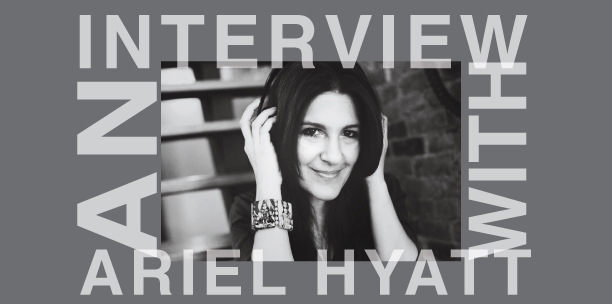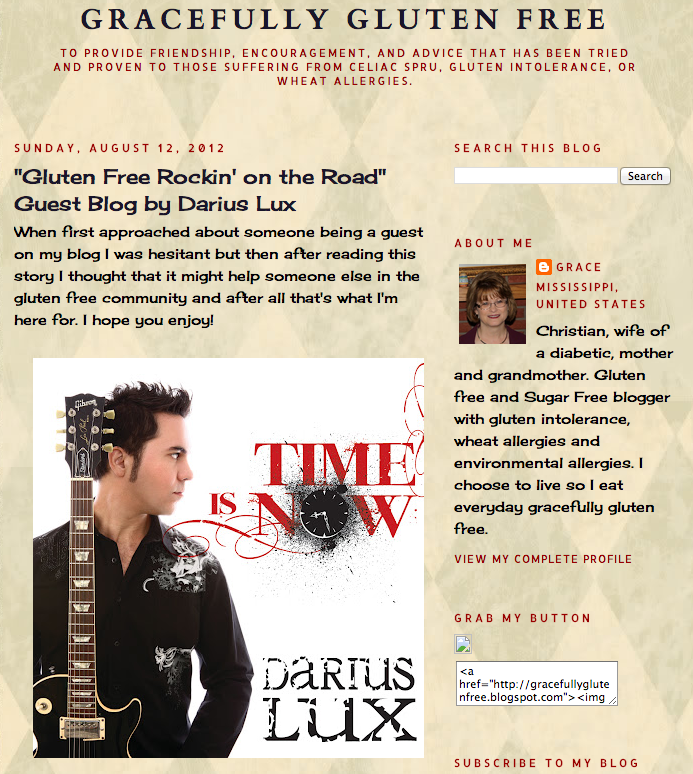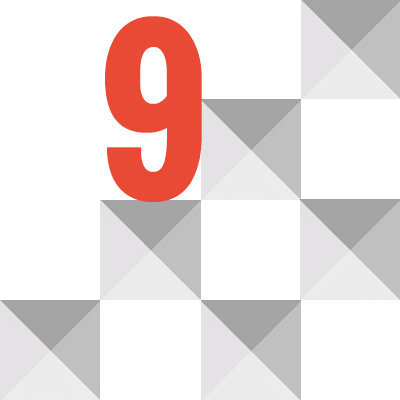Connecting on Social Media: A Chat with Ariel Hyatt

Ariel Hyatt
is our go-to gal for ALL things social media. She’s the founder of online marketing and social media management firm CyberPR, and is an international speaker, educator, and author of three books on social media and marketing for artists. We recently caught up with Ariel on the beaches of Spain (via cyberspace, of course) to interview her on how she helps her clients to make connecting on Social Media happen.
What turns you on about coaching a client into identifying their niche or thought leadership role?
I think the reason why people feel so resistant towards social media and online marketing (in general) is they haven’t taken the time to really understand what their niches are.
This is what is exciting to me: getting those lights turned on with a client.
Once you do this and dominate even the most narrow corner of a particular niche, thought leadership begins to identify itself and fall into place. In the new economy, whether you are employed by a company, self-employed or a creative thought leader, pitching yourself will be the thing that separates you from the pack.
What’s the first step in approaching a company’s or client’s social media campaign?
First we want our clients to tell the truth about social media. If you don’t like it that’s fine, if you don’t see the sense in it, that’s why you’ve hired us to help you. We are excellent at making sense of social. It’s like diet and exercise (you know what you’re supposed to do, but that doesn’t mean that you necessarily like it or do it every single day). Our first step is identifying what the client is willing to do, versus what they are unwilling to do. Then we can focus on what turns them on and take on what doesn’t excite them, so the burden is off and they feel less stress and strife. For some of our clients that means handling all of their social–soup to nuts. For others it means just handling one or two items. Everyone is unique.
 What can a client do to help you identify their unique voice in their marketplace? What can they give you so that you have the right building blocks?
What can a client do to help you identify their unique voice in their marketplace? What can they give you so that you have the right building blocks?
I always like to begin identifying a unique voice by thinking about the questions my clients get asked the most (both positive and negative). If you can answer those questions, you will solve a problem. Then we ask: Who inspires you? How do you want to inspire others with your art? How would you like to change the world? I know this sounds a bit lofty, but the answers to these questions build the foundation to connecting on Social Media with a unique online voice. The best thing a client can do is to be completely open with me and my team — to help us help them. The best clients are the ones who let go, and trust that this is a process we know and excel in.
Tell me your favorite social media success story?

I really love the story of Darius Lux. He is an artist who we worked with over a year and a half ago who is not unlike thousands of other artists — a talented, competent songwriter. We had a video that we hoped would go viral, and it didn’t, so we had to change course. We did a massive brainstorming with Darius and he confided that because of a recent diagnosis he had begun a gluten-free lifestyle. It was as if a lightbulb went off! I asked him if he would mind if I pitched him to some gluten free websites and blogs. At first he was resistant: “what does being gluten-free have to do with my music?” (His music is not about nutrition or being gluten free.)
We managed to place his story onto dozens of websites who began calling him the gluten-free rockstar. He was invited to perform at a gluten-free food festival, and has since created communities of fans who would never have been introduced to him unless they had seen him at the gluten-free events or read about him on the gluten-free blogs. He has reached markets where he had no exposure and no fans.
Does this mean when you go to Darius Lux’s website that it says “hello, I’m the gluten-free rockstar?” No absolutely not, in fact his website barely mentions that. Just because you connect in a niche and become known in that community does not mean your entire identity gets given over to it. It is just a supplemental and fantastic place to connect with a tribe of people who may be like-minded, and this can spur on new appreciative audiences.
“My team is successful when we help an artist identify an area where there are fans and where appreciative new connections are waiting.”
How can it go wrong?
It can go wrong when it is inauthentic. Way too many times I have seen clients notice what is trendy or what seems to be popular in the media or on blogs and then decide to go towards those niches. The internet is the best BS filter in the world, and if you are not authentic, people will know.
The other cautionary tale is sometimes we think there might be a niche that is appropriate and it turns out that it is not. For example, we had an artist who created a lullaby album for children and she wanted us to go after music therapists because she noticed that when she played the lullabies for her own daughter it had a relaxing and calming hypnotic effect. What the music therapist community quickly taught us was that our artist was not licensed in this area, nor was she a scholar. Although her music is appreciated by the therapists, it is not appropriate for their needs, which are more scholarly and scientific. We had to readjust our campaign goals and reassess how best to market her music.
For those folks out there who think social media is for the young generation or not relevant to them, tell us how a strong social media presence affects a company’s bottom line.
I’m always hesitant to talk about social media and ROI (Return On Investment).
I equate it to getting upset if you attend a cocktail party and don’t make money.
The internet and social media are first and foremost social, and they require a lot of effort, energy and time. I know in my heart and soul that engaging in sharing and caring about other people will get you extremely far. I know from personal experience and from working with our clients, that for those who play the game and play it well—and consistently—for a significant period of time that magic and miracles happen. It is not just for young people. Every single social media site is experiencing growth from older generations. It turns out older people love to be connected to friends, family, colleagues and potential business too!

What would you tell a protégé or someone starting out in social media management about how to develop their skills to be successful?
This will take a long time! If you have used social media as a “digital native” — meaning you grew up with a mobile phone in your hand, texting and tweeting from day one — then you must understand that communicating with SM for professional and business reasons is a nuanced endeavor that will take some rethinking about quality vs. quantity.
“They must also understand business, sales, marketing, strategy—the whole 30,000 foot view—to be successful at social media management.”
Digital natives are fabulous social media managers, but I make sure newbies understand the bigger goals — business, sales, marketing, strategy — the whole 30,000 foot view — to be successful at social media management.
Biggest challenge in your game? Best reward?
It’s cliché, but social is a marathon and not a sprint. It’s sometimes a challenge to get a client to understand that they can not just pay for someone to do it all and get a result. The client must be involved and be willing to create incredible amounts of content, which will take time, energy and effort to get right. Darius Lux was not thrilled when we asked him to write 12 different blog posts for 12 different small blogs and then be interviewed individually by multiple podcasts and radio shows, PLUS share recipes. It was a lot of work and he was not anticipating doing this work in such a narrow niche. However, now it is a year later and he is seeing benefits, as he is returning to some of these markets as a touring musician. You can say the best reward is when it works…when you see results, feel results and get paid for the results. This is obviously the goal that we have in mind from day one. The frustrating part for us is inspiring patience with our clients, since the goal can take two years or more to achieve.

The World Wide Web debuted August 6th, 1991, 22 years ago this month (she’s a real adult now). What words of advice or caution or congratulation do you have for WWW as she enters adulthood?
Wow! We have really come a long way. HAPPY BIRTHDAY, MS. WWW! I caution you to not change too fast so the rest of us can keep up. ☺




